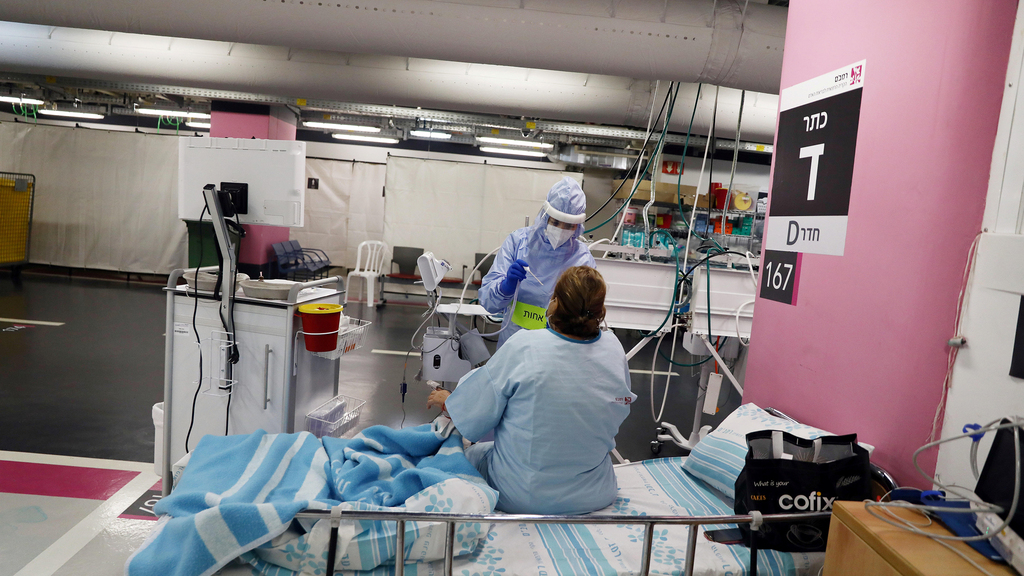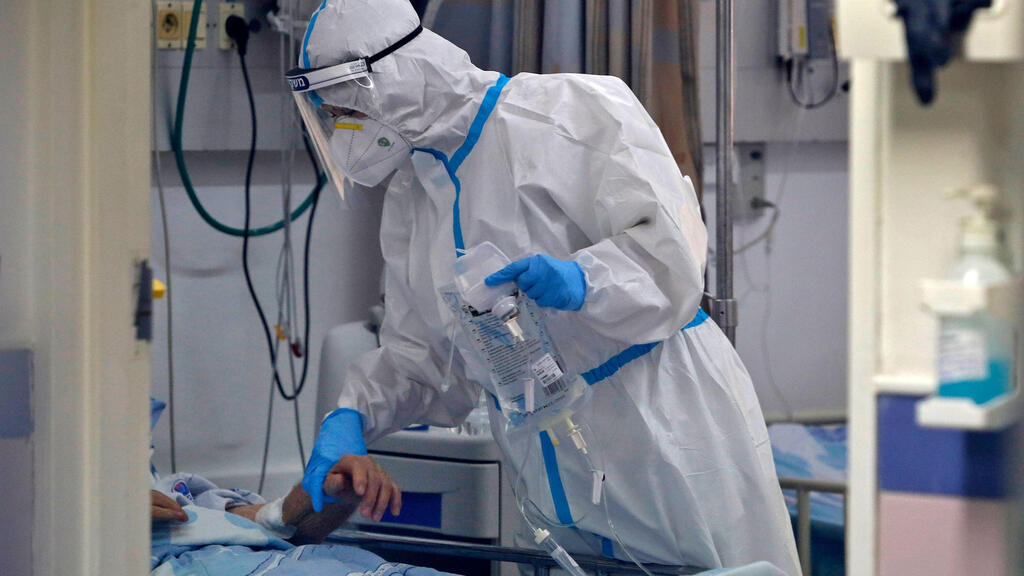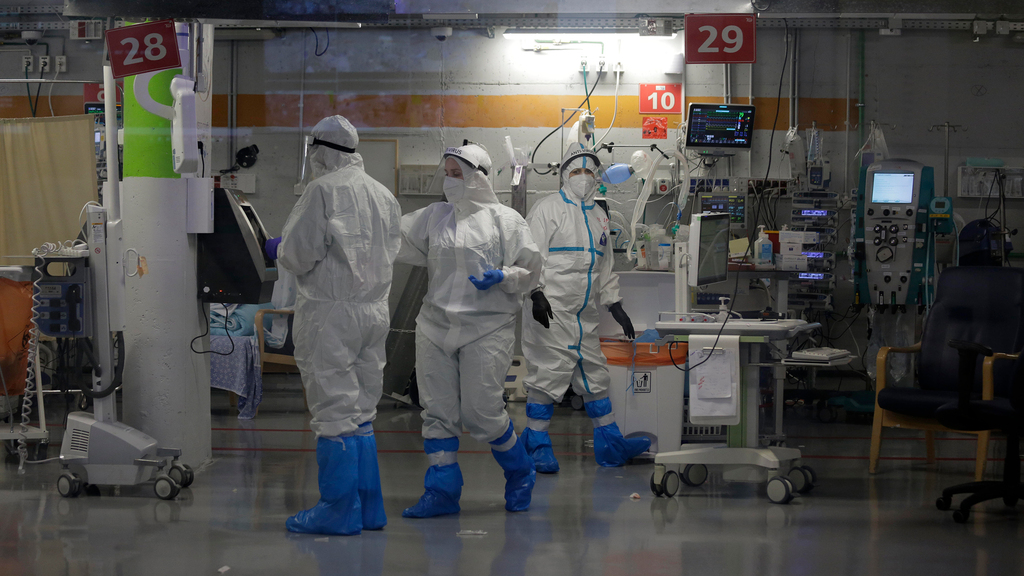The coronavirus has proven a substantial global challenge. It seems that every medical center around the world has been forced to adapt and change in order to successfully handle the outbreak of the pathogen.
It is a war of attrition of a new breed, one whose front is not in foxholes or in trenches, but in hospital wards and clinics.
3 View gallery


A parking lot turned into a coronavirus ward at Rambam Healthcare Campus in Haifa
(Photo: Reuters)
And while the entire world is fighting the same battle, the reality in Israel is - as ever - more complicated, as we are waging our war on three different fronts.
The first front is the "coronavirus front" - our national infection and death rates.
While our infection rate is among the highest in the world, Israel’s death rate is actually among the lowest: Our death rate currently stands at 0.7%, while in the U.S. it is 2.75% , in the UK it is 6.7% and in Italy 10%.
Every life lost is an entire world gone and an unbearable blow, yet Israel's relative success in this area can be attributed to many factors, including the average biological age in Israel, the large number of tests conducted, the strongest medical system, and above all the medical teams who are the tip of the spear in the fight.
3 View gallery


Medical staff treating a patient in Barzilai Medical Center's coronavirus ward
(Photo: AFP)
The second front is the “routine” - how well Israel’s hospitals have managed to continue their regular medical activities despite the pandemic.
Unlike during the first wave of the pandemic where routine activity in hospitals was significantly reduced, most of Israel’s hospitals have managed to preserve other medical services such as clinics, consultations, surgeries and the like during the second wave.
While the number of coronavirus patients increased exponentially during the second wave, the fact is that most of the patients who were hospitalized were still the ones suffering from underlying health issues unrelated to COVID-19.
The success of the healthcare system and the hospitals in maintaining operations in the face of such a large wave of infections is a badge of honor for the medical staff who kept treating all the sick and wounded in Israel as if there were no pandemic, even as they waged a bitter war against the v.
The third front is “security” - the security situation that remains perilous and even escalated during the pandemic.
In Israel, and especially in the south, hospitals face an absurd situation in which they must continue offering medical assistance under rocket fire.
In Barzilai Medical Center in Ashkelon where I work, there is a very real possibility that the ER staff will have to treat COVID, strokes, heart attacks, gallstones and more, all while under attack.
I remain hopeful that such a scenario does not come to pass, but I am sure that if it does, Israel’s medical professionals will cope with it successfully and courageously. For this is who we are and what we do.
Prof. Yaniv Sherer is Chief Executive Officer at Barzilai Medical Center in Ashkelon


